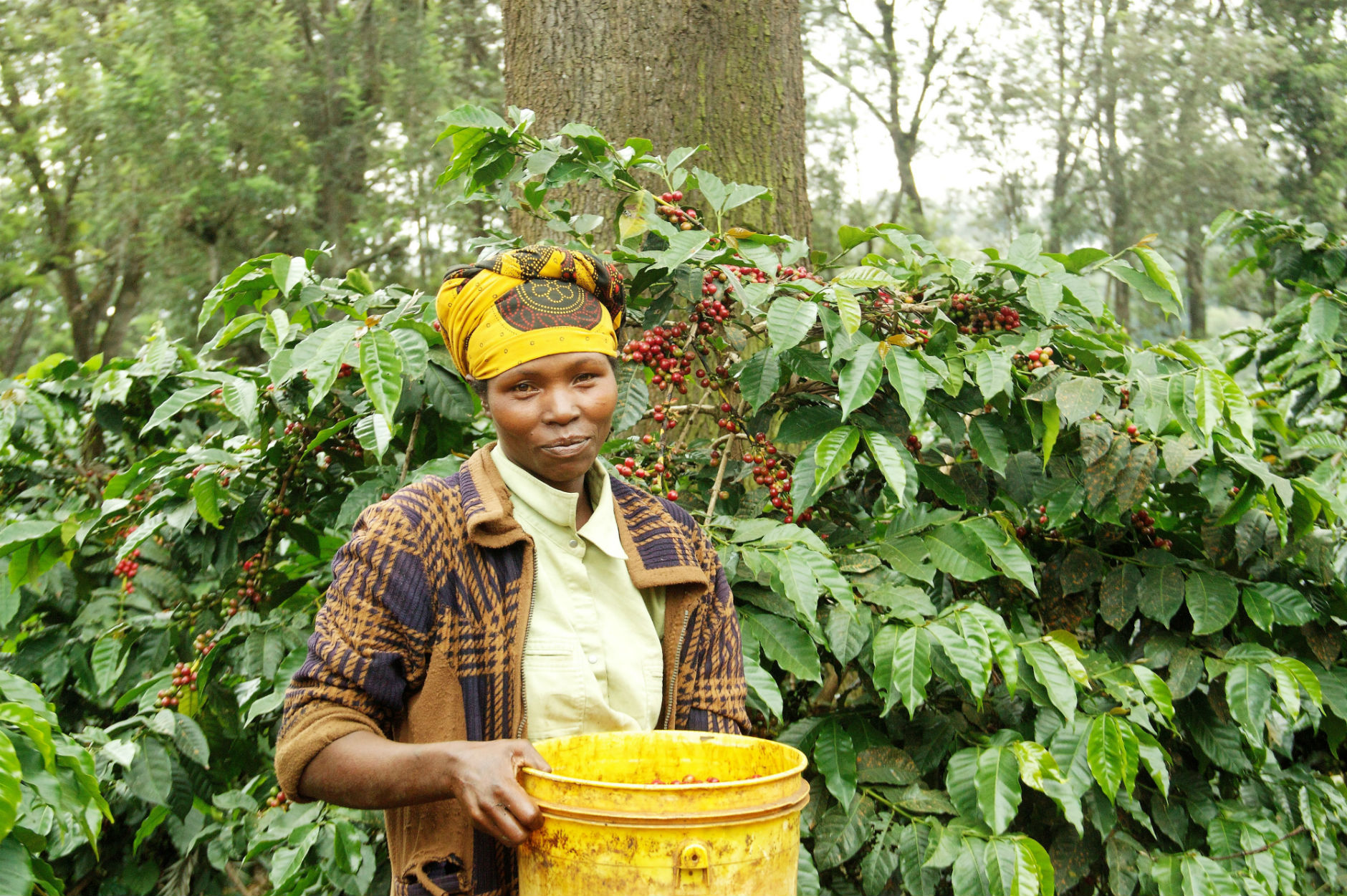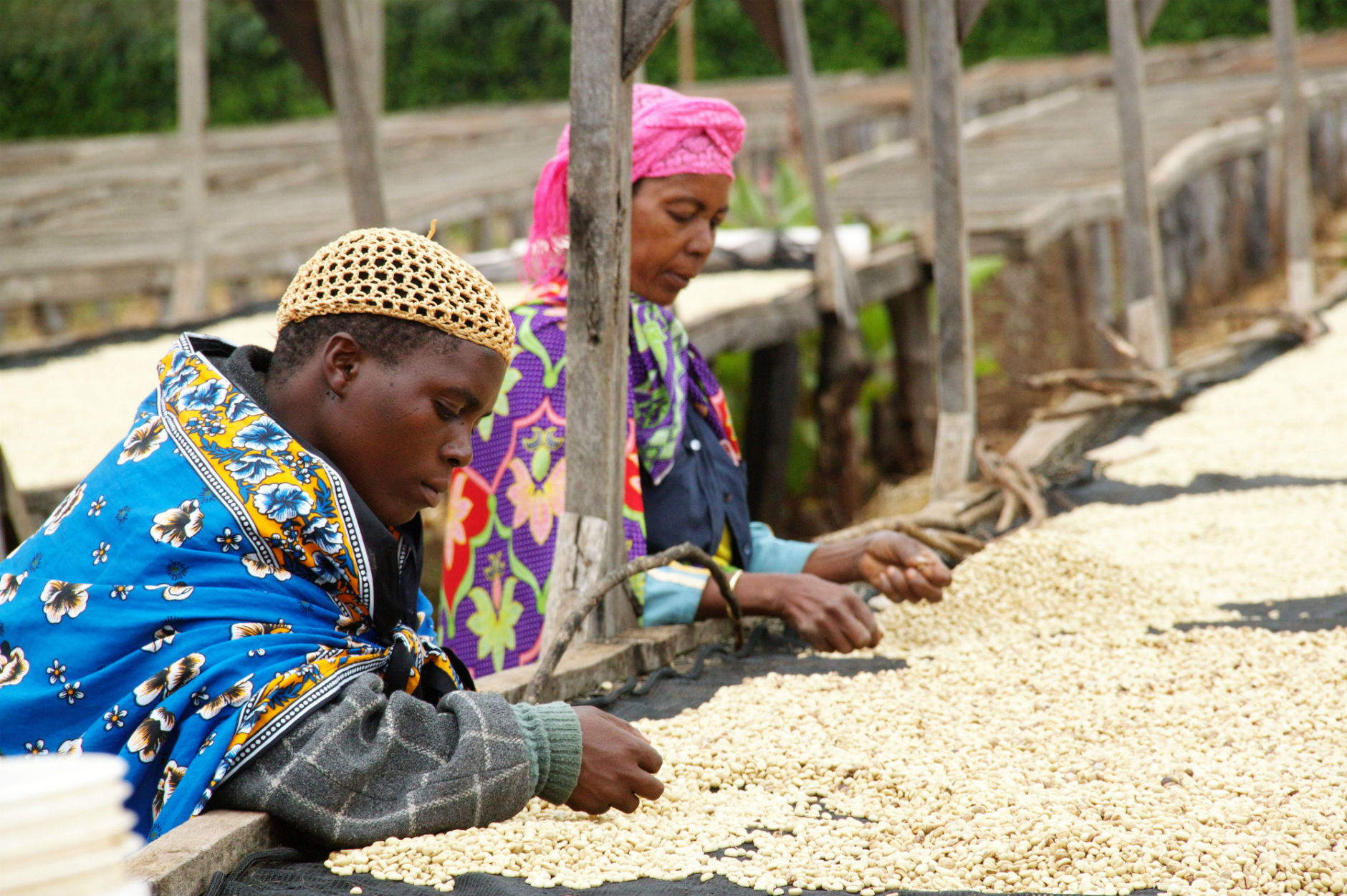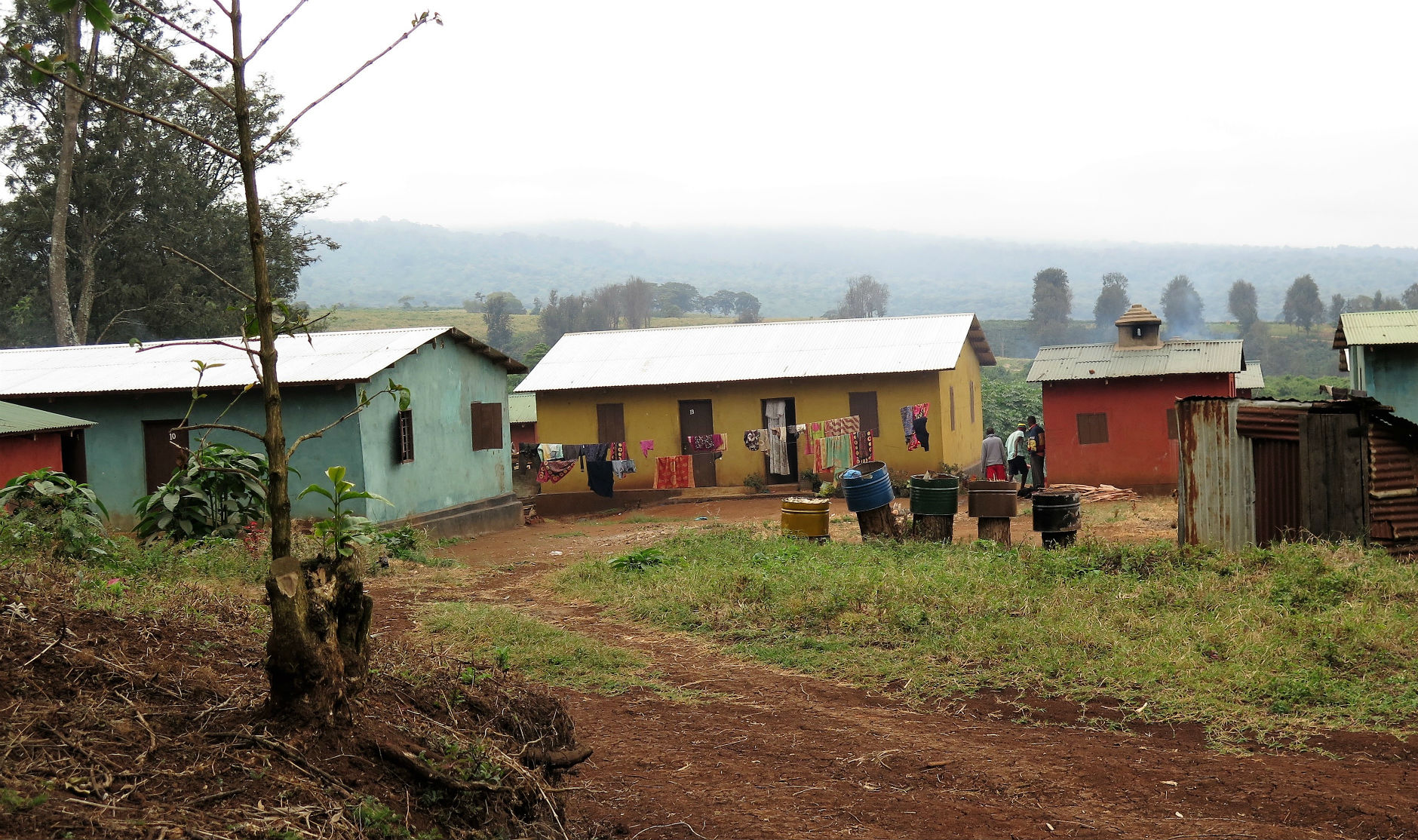Tanzania RFA Ngorongoro Finagro Estate Gesha – 30775 – Agroz Bags – SPOT RCWHSE
Position Spot
Bags 0
Warehouses Oakland
Please Note This coffee landed more than 8 months ago.
Out of stock
About this coffee
Grower
Vohora Family | Finagro Ascona Estate
Altitude
1700 masl
Variety
Gesha
Soil
Volcanic loam
Region
Karatu District, Arusha Region, Tanzania
Process
Fully washed and dried in raised beds
Harvest
July - December
Certification
Rainforest Alliance
Coffee Background
This is a single-estate geisha microlot from northern Tanzania, extremely unique to almost the entire East Africa region where single cultivars, let alone geishas, are rarely produced for export. The Vohora siblings who produced it are part of an outstanding, multi-generational family who take climate preservation and quality equally seriously. The Vohoras manage a combined 1000 hectares of gorgeous coffee farm and forest preserve along the rim of northern Tanzania’s Ngorongoro crater, and produce a stunning variety of profiles, through variety and process separation, year after year.
Finagro Estate
Finagro Estate is a 600-hectare coffee plantation in the Karatu district of Tanzania. The estate is technically comprised of two conjoined farms—Ascona and Helgoland—and is currently owned and managed by Neel and Kavita Vohora, siblings, multi-generation coffee growers, and agricultural entrepreneurs in this extremely unique part of East Africa. Both farms are cultivated along the rim of the Ngorongoro Crater, the largest unbroken caldera in the world and a breathtakingly scenic landscape of escarpments and fertile open range that has been a UNESCO World Heritage site since 1979.
The coffee planted on Finagro is sub-divided into blocs by microclimate or cultivar, allowing the Vohoras and their harvest staff of 850 to manage each specific need of the farm in an orderly way. Neel and Kavita have been steady suppliers for Royal for a few years, and beyond the ever-in-demand peaberries that have become synonymous with Tanzania specialty, the brother and sister have put their size and
expertise to use introducing a dizzying variation of processing styles into the world. Some of which we are also lucky to cup and carry each year.
Processing for the geisha microlot is very similar to fully-washed processing throughout the farm: after a brief cherry fermentation lasting 24 hours after picking, the coffee is depulped, fermented for 36-72 hours, shade dried for 3 days, and finished by drying in full sun for another week.
Geisha?
The modern Panamanian “geisha”, as it’s been known for the past 15 years throughout Latin America, is believed to have evolved directly from a small seed stock collected in Ethiopia’s southwest Gesha district. The now highly coveted cultivar is paradoxically almost never grown on its own in East Africa since technically, by this point in time with so many years of propagation behind it, it is an American lineage more than an African one, no longer really associated with its continent of origin. So it’s a very unique twist on coffee’s long genetic journey across the world that a single estate in Tanzania would acquire geisha seed from a producer acquaintance in Central America and cultivate it on their farm. The Vohoras for many years have maintained grower connections throughout the wider producer world, and it didn’t take much to inspire them to obtain and produce world-renowned genetics from other origins. The result this year is abundantly floral and sweet with coriander-like aromatics, jasmine, and strawberry—not unlike many of our favorite washed geishas from throughout the Americas.
The Vohora Family & Ngorongoro
Since 1971, the Vohoras have owned about 1000 hectares of farmland on the southern exterior slopes of the Ngorongoro caldera near the town of Karatu in Tanzania’s lush rift valley. The Vohora farms possess Rainforest Alliance certificate, and the family and their 50+ full-time employees (and 1500 seasonal workers) on the farm have done a remarkable job of upkeep and preservation of natural beauty while also running a thriving coffee business. They are diversifying into macadamia and honey, provide temporary housing for harvest labor, and even supply land on the farm for local smallholders to grow beans - a mutually beneficial crop as the legumes fix nitrogen in the soil, a critical step in a healthy cycle of crops.
Tanzania’s commercial coffee production began under colonial control of European nations. The farms’ names are testament to the German influence of the late 1800s, but it was the British who encouraged large-scale productivity in the 1920s. Edelweiss Farm and the two farms comprising Finagro were transferred to the administration of one B.N. Vohora, an Indian farm manager, who would later buy the farm at an auction. His son Ajai runs the family business now from Nairobi. Ajai’s own children, Neel and Kavita, are the day-to-day managers and innovators on the ground in Tanzania keeping the farm alive and prosperous. Kavita manages the dry mill and warehouse in Arusha, while Neel aids with the management of the farms and wet mills.
Today, Neel and Kavita are third-generation Tanzanians, and their family has been in the Tanzanian coffee business since the end of the second World War. The family export business based in Arusha has more than 60 years’ experience in the country.
Finagro Estate, to us, is a coffee paradise. Natural forest canopy shades the trees over the combined 600 hectares of land, much of which is left to natural forest. There are four new reservoirs and a dam allowing efficient irrigation and conservation of water. Growing mainly Kent (a Bourbon variety first
cultivated in India) along with newly maturing SL-28s and SL-34s, and other newer Kenyan cultivars, the clear focus is quality, and it’s exhilarating to see the attention and dedication of two young farmers who are clearly resolved to make the most of their very special corner of the planet.






